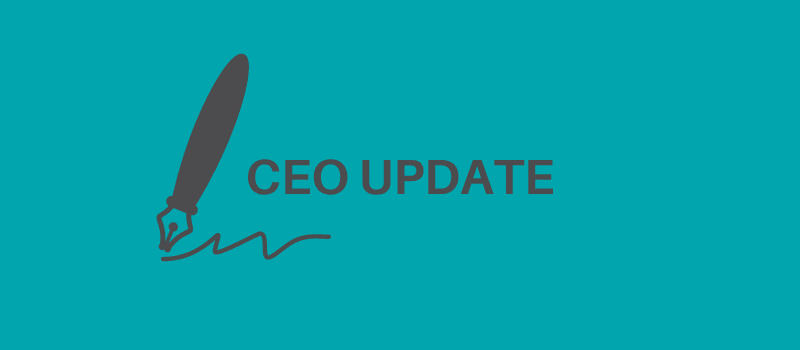
CEO Update | February 2022
Read our latest CEO Update, as originally published in our Winter 2022 newsletter.
In Toronto, where the Inspirit office is located, 2022 began with yet another lockdown. The collective fatigue is overwhelming as public systems we imagined would be there for us are crumbling, even as we knew about their fragility well before a global pandemic. But this winter, as I walk with friends at a nearby park, we remind each other about last winter, these same trails, but very different fears. Last winter, COVID vaccines did not exist.
So, I welcome this new year with some optimism and even excitement. Late fall, Inspirit was joined by three new Board members: James Chan, Pacinthe Mattar, and Sally Ng. I look forward to working with them. We also say goodbye to Ginger Gosnell-Myers who is moving on after nine years of service to the Inspirit Board. Her commitment of both time and energy have been a gift to the Foundation; I have learned so much through her advocacy for Indigenous self-determination. Thank you Ginger.
In 2021, Inspirit distributed over $2 million through grants and partnerships, with over a third going to Indigenous led organizations. We increased funding amounts, as well as the number of unrestricted and multi-year grants. This also means that we are working with a smaller number of grantees and partners in building narrative power; challenging and changing entrenched systems requires trust, mutual learning, and longer-term support. Updated language about our approach and granting opportunities, as well as a new portal for applications will be available on our website soon.Although we may be working more closely with fewer grantees and partners, please do reach out to us.
Over the past year, we also quietly rolled out a new theory of change and worked with grantees to pressure test a new evaluation process. While we had wonderful feedback, our partners also told us that we have an opportunity to support beyond funding, that is, to be a thought partner and champion of their work. We are listening, and are excited to deepen this work in the coming year.
In our Narrative Change Lab, we have begun a targeted recruitment for our first cohort of 10-12 Muslim thinkers and content creators in the media and arts. One clear theme that emerged from a year of research is that new narratives require infrastructure to grow. This is fledgling work in Canada, particularly when it comes to the diversity of Muslim-led stories within the creative sectors. As the cohort gathers, we will share our learnings.
In impact investing, our latest work is also focused on supporting infrastructure. We are working with the Afro Caribbean Business Network Foundation on their new MicroLoan Fund to help entrepreneurs of African and Caribbean descent access low interest loans. The Fund is focused on the first hurdle: supporting businesses to become registered entities or sole proprietorships in order to access a business bank account through a partnership with Alterna Savings. You can read more about this initiative here.
As I put the finishing touches on these remarks, I am thinking about yet another discovery of unmarked graves of Indigenous children, and the recognition of the first National Day of Remembrance of the Quebec City Mosque Attack and Action Against Islamophobia. The collective trauma felt by so many at this moment is so big, and so real.
So I am reminded too of the process of recovering from a broken elbow and fractured wrist last summer and fall. I could feel the improvement after the cast came off for good and the bone had set, further improvement as I began basic physiotherapy, only to be replaced by pain during strength training. This building of strength after a break is the metaphor I cling to as I try to convince myself that a broken bone heals back stronger.
Sincerely,
Sadia Zaman, CEO